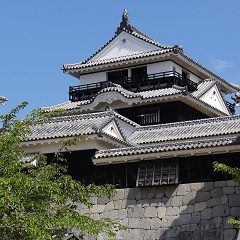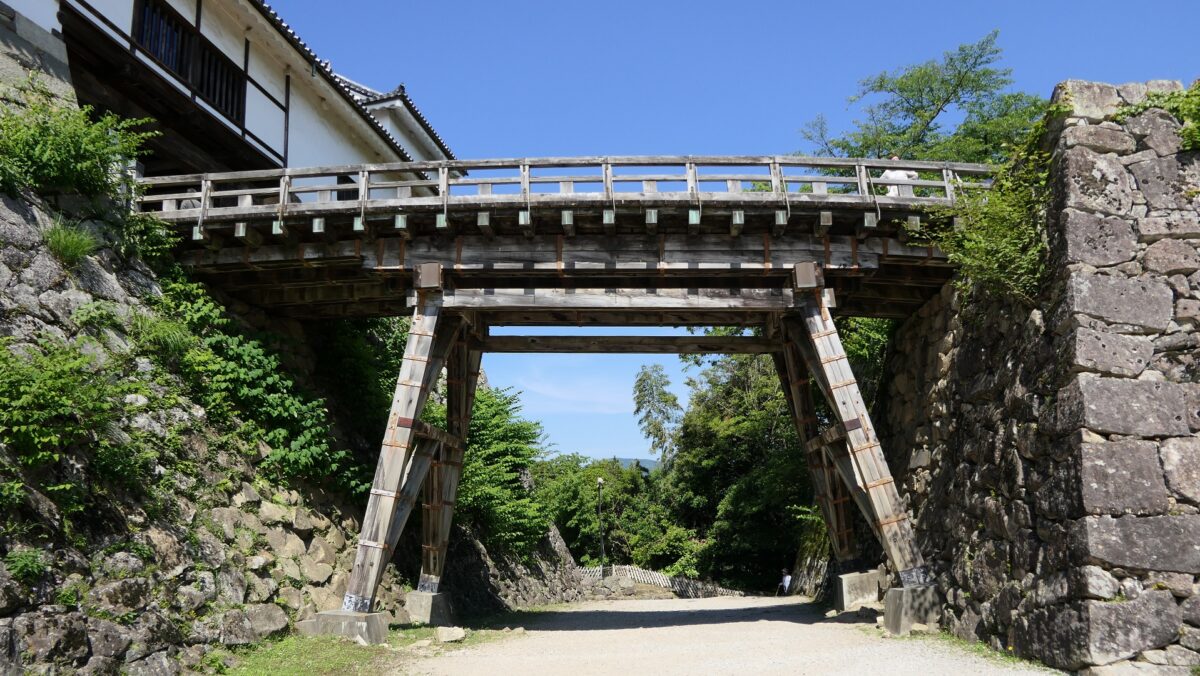Features
Entering Sawayama Route
Today, Hikone Castle site has well been developed for visitors inside the Middle Moat (the second moat from the Inner Moat). There are three routes over the moat same as the past (Sawa-guchi, Kyobashi-guchi and Funamachi-guchi). Out of them, the Sawaguchi Route is the most popular as it is close from Hikone Station and to the front entrance of the castle. If you choose the route, you will first see the remaining the Sawaguchi-Tamon Turret on the left with a distant view of the Main Tower. The entrance to the castle consists of this turret and the other restored turret on the right. After entering, you will also see the remaining Stable which in the only remaining case in castles in Japan.
The aerial photo around the castle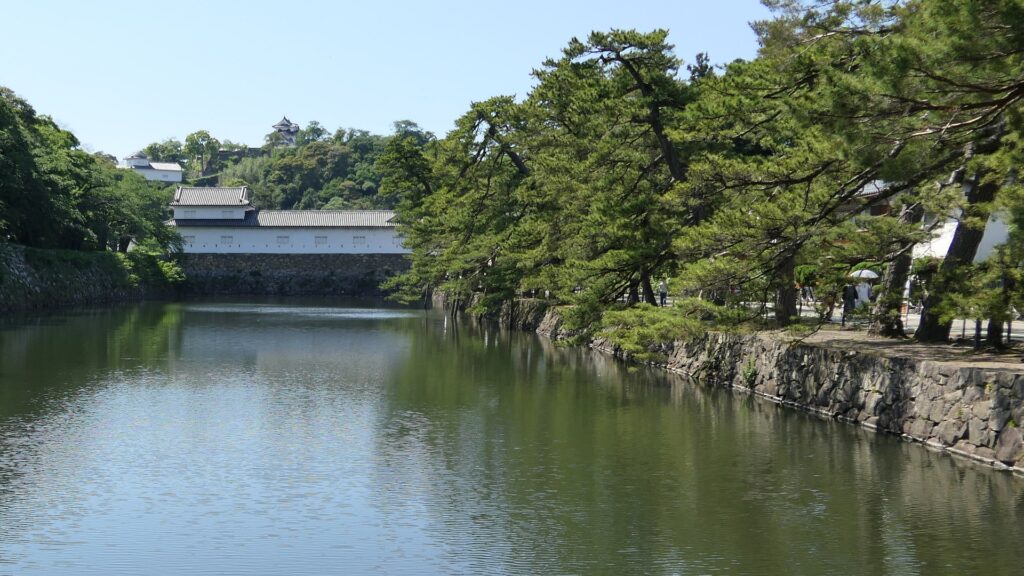
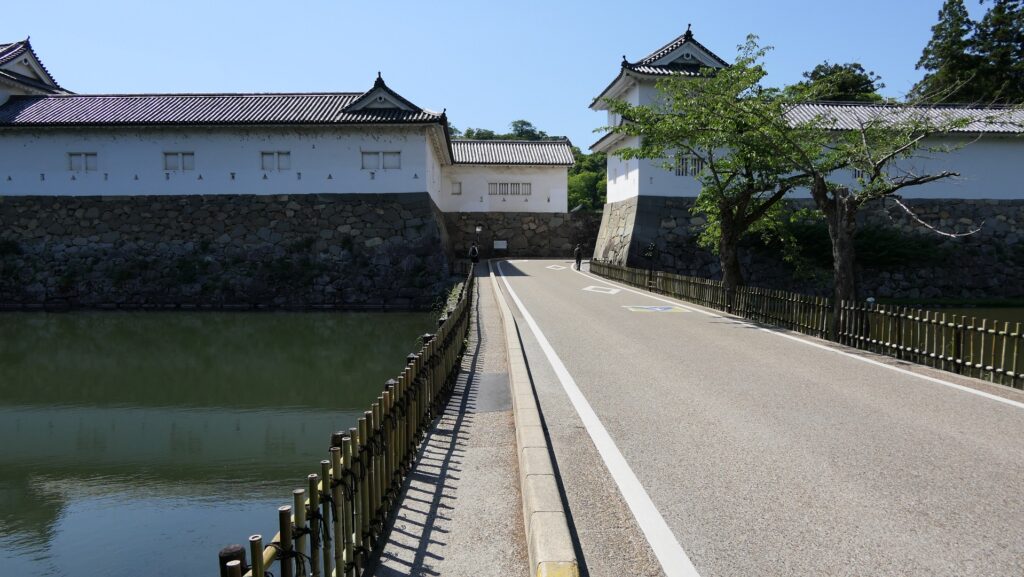

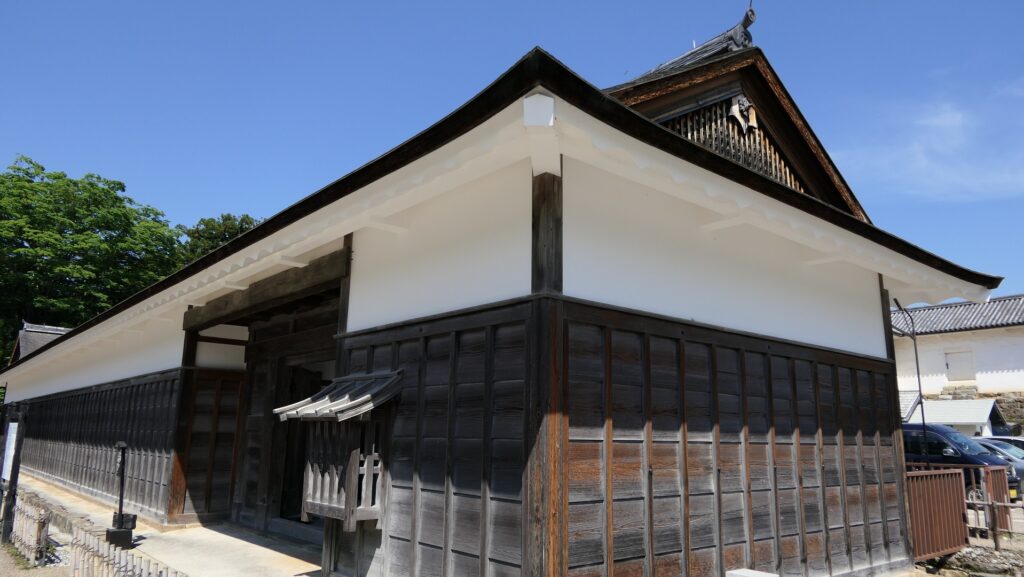
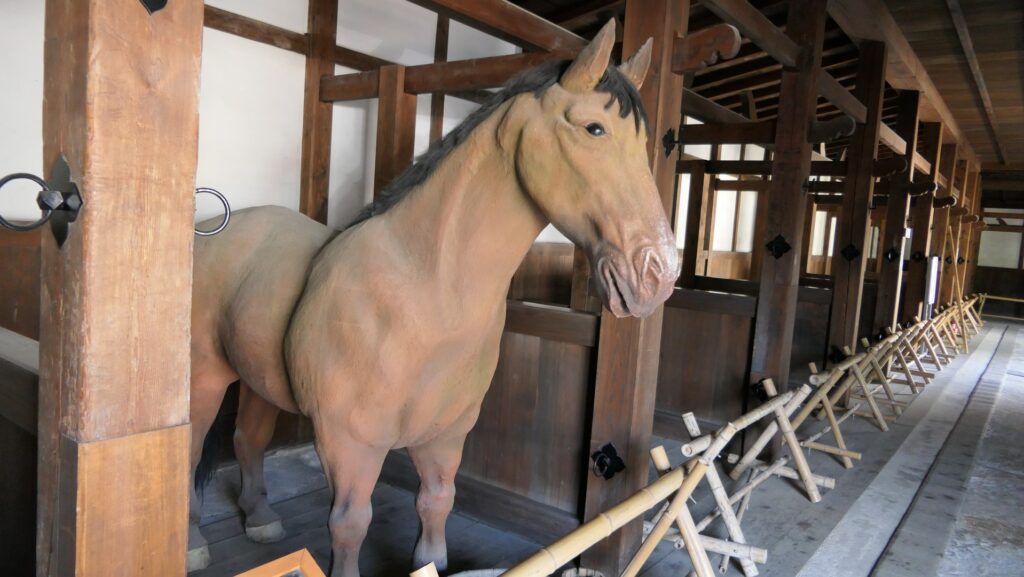
Lots of Exhibition of Hikone Castle Museum
You can go across the bridge over the Inner Moat to enter the Front Gate Ruins as the front entrance of the castle. Inside the ruins, there is the Hikone Castle Museum which looks like the past Main Hall for the lord at the same place. The museum stores over 90,000 items about the Ii Clan and Hikone Domain and exhibits about 100 items of them.
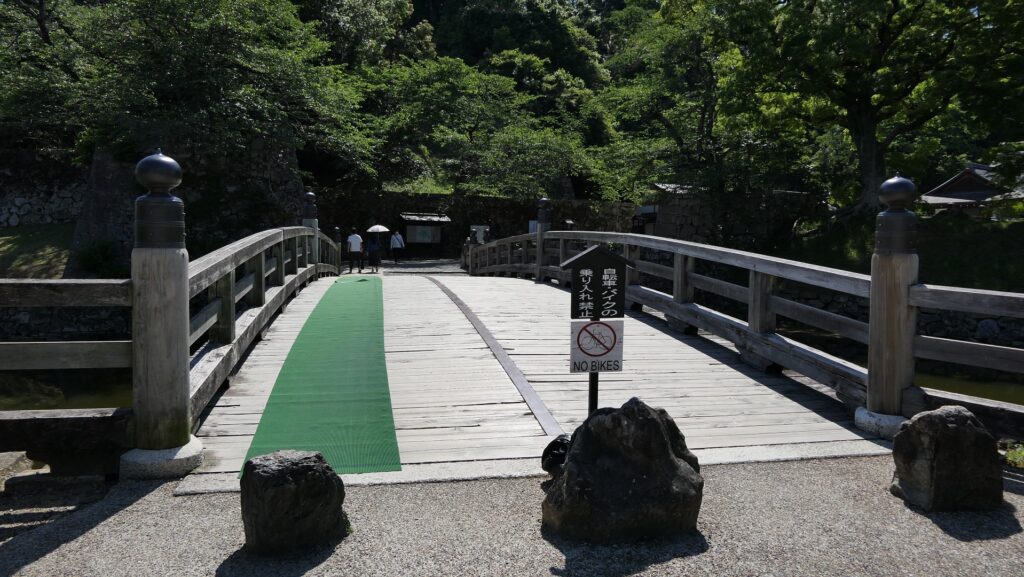



You can see the items such as the unique Ii Clan’s Red Armor, swords, tee things, Noh masks and the remaining Noh stage. In the back of the museum, you should check out the restored part of the lord’s private quarters and Japanese Garden. They were restored in traditional methods using wooden materials based on the records and excavations.



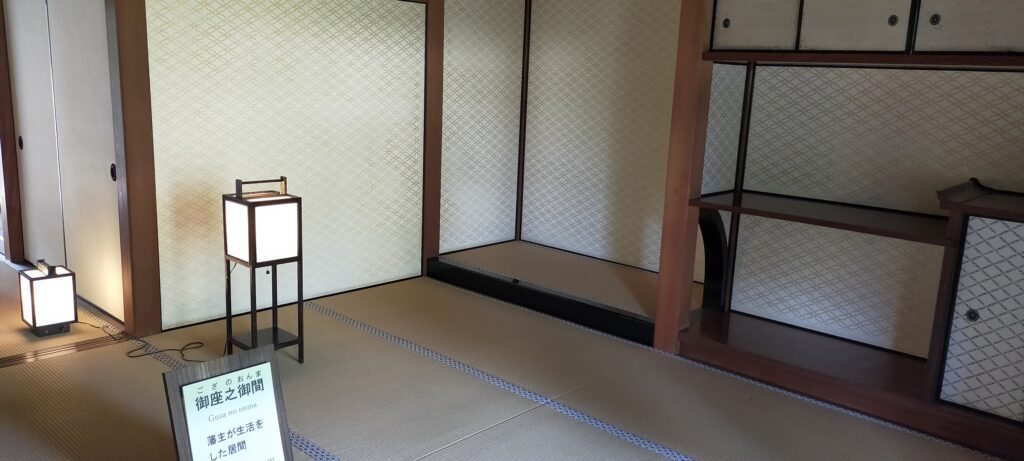

Strong Line of Defense around Large Ditch
Let us next climb up the mountain to the center of the castle. After walking the long, wide stone steps, you will see a huge scale deep ditch with a bridge over it. You will need to go to the Taiko-maru Enclosure on the right side of the ditch to the center. However, you will first have to go on the bottom of the ditch, turn left to the other Kanenomaru Enclosure on the left, and go across the bridge to reach the enclosure. If you were an enemy, you would be counterattacked from both sides of the ditch, and the bridge would be fallen. The remaining Tenbin-Yagura or the Balance Turret also stands behind the bridge to protect the enclosure. It is said that this turret was built by moving the Main Gate of Nagahama Castle.
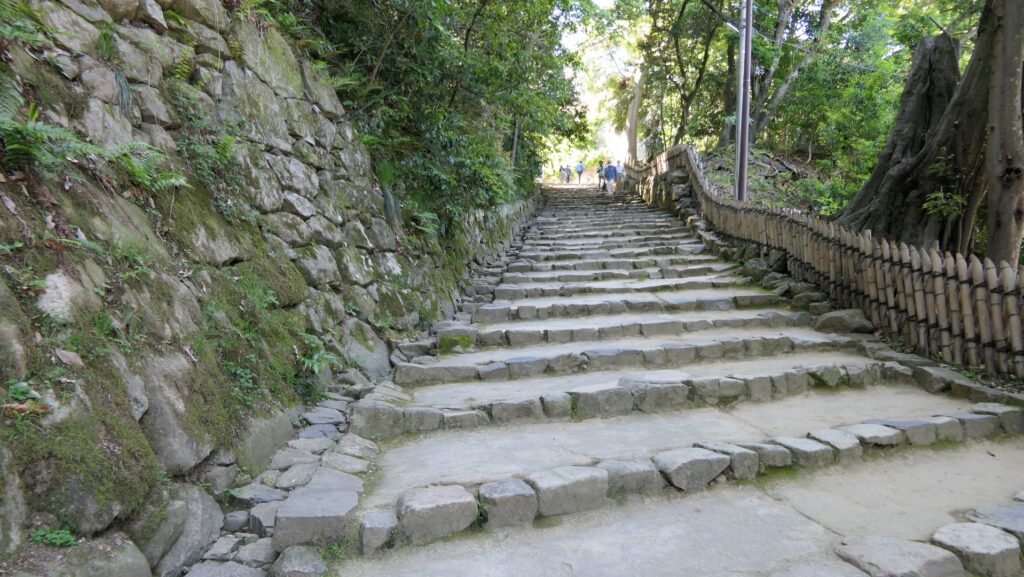
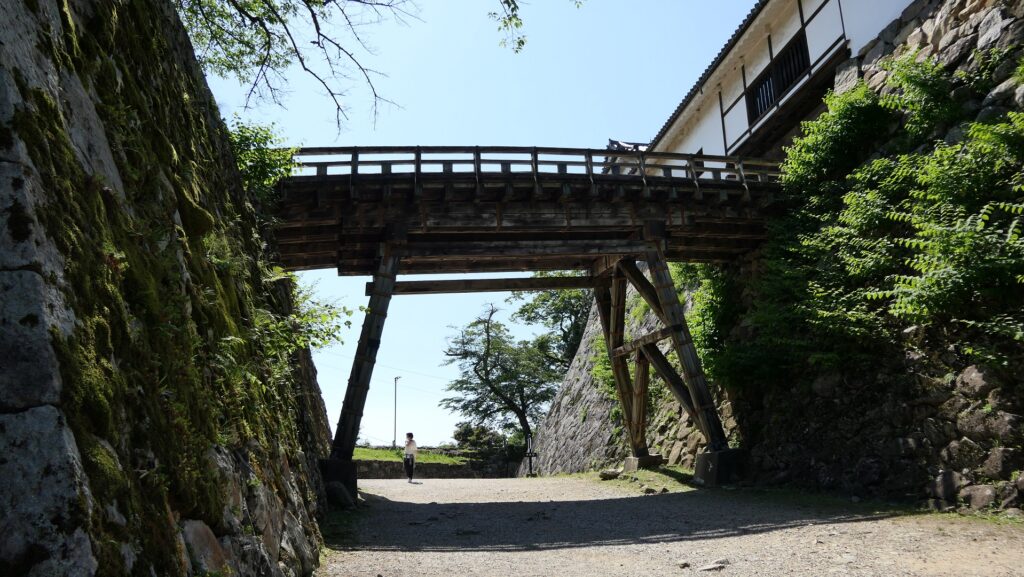
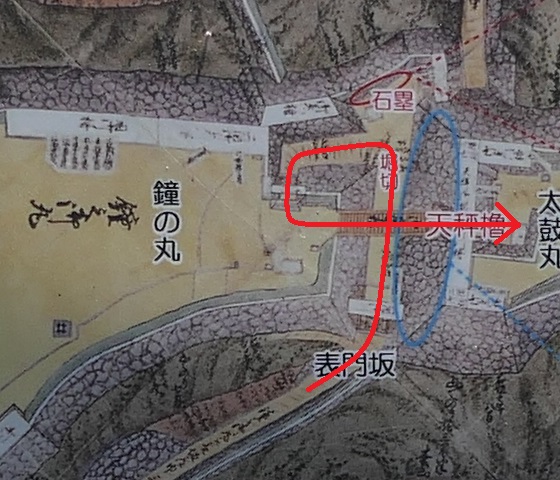



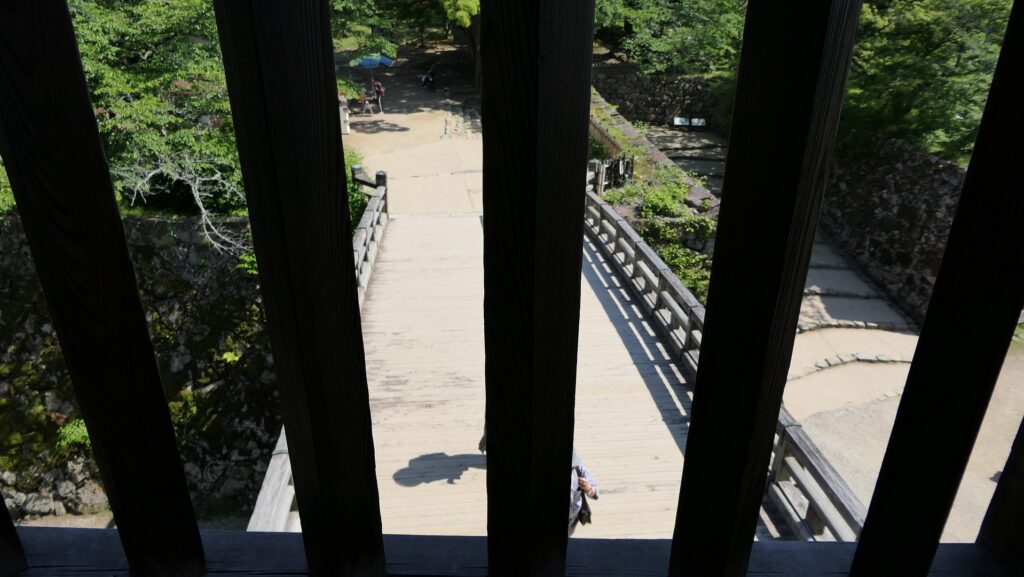
Contrasting Exterior and Interior of Main Tower
After passing the Taiko-maru Enclosure, you will reach the remaining Taiko-mon Yagura or the Drum Gate Turret, as the entrance of the Main Enclosure. There is only the Main Tower in the enclosure, but it looks very elegant.
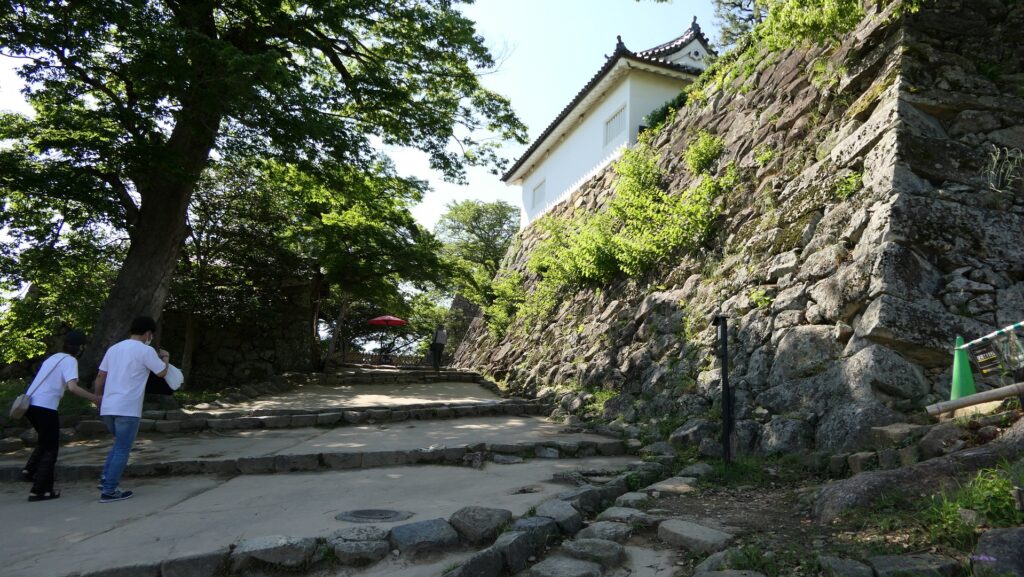
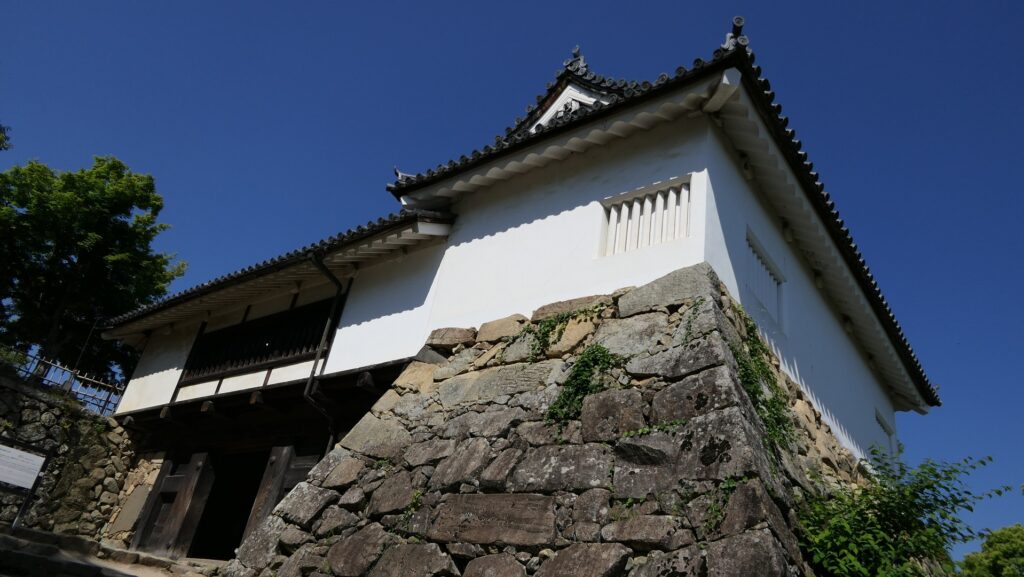
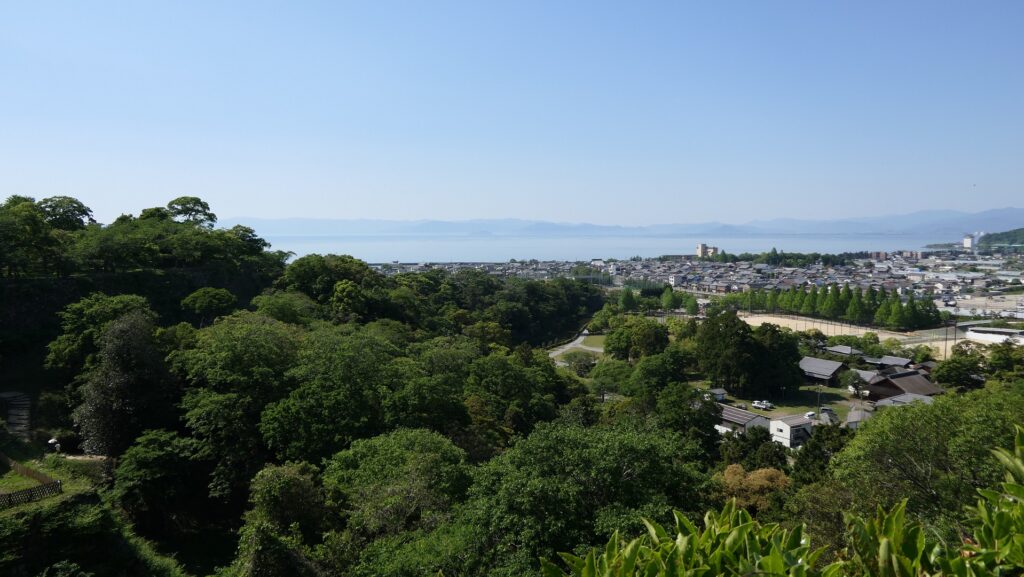

This is because this three-level tower has a lot of decorations such as Chinese styled gables with gold work, hip-and-gables, gable ends, bell-shaped windows and the decorated veranda.

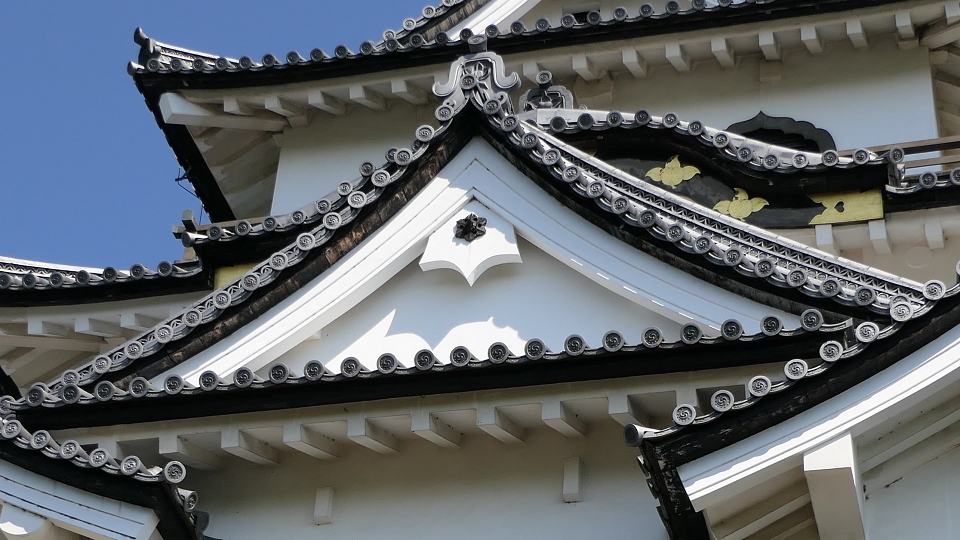
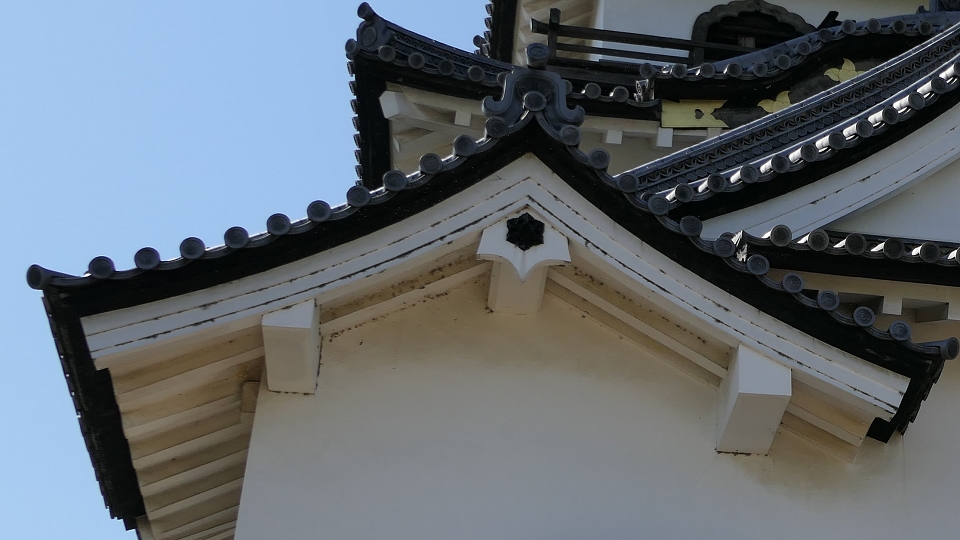
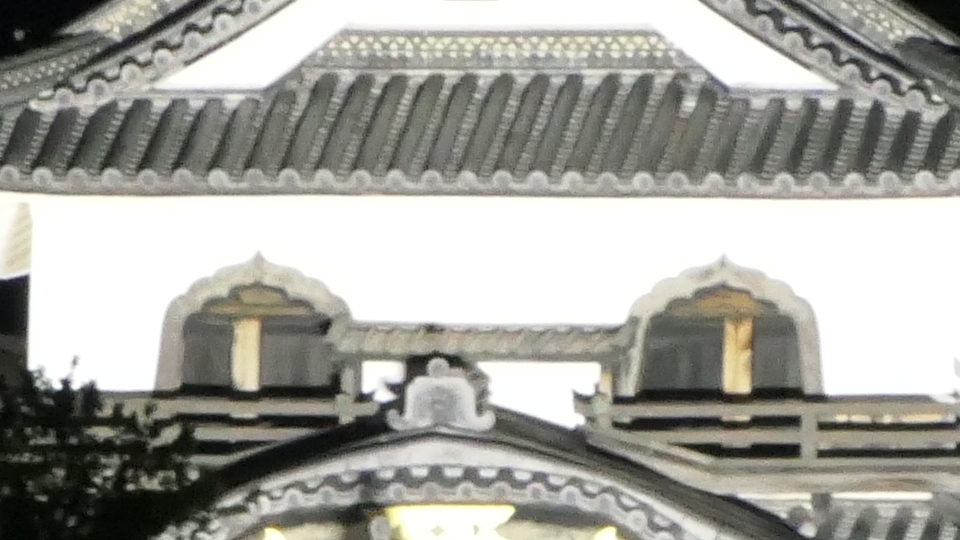
You can enter the tower to look around from the first to the top which is the third floor. The interior of the tower is practical in contrast with its exterior. You can find many hidden loopholes for guns which would be used by breaking the outside walls. The holes have been left hidden because no battles occurred. It was also found that the tower was built by moving the four-level Main Tower of Otsu Castle and reducing to three levels.
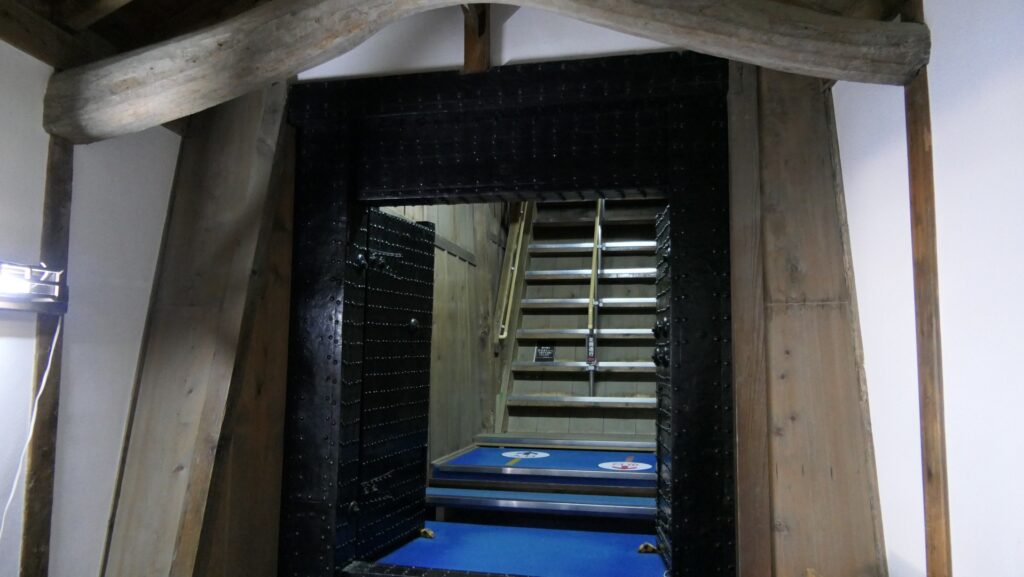

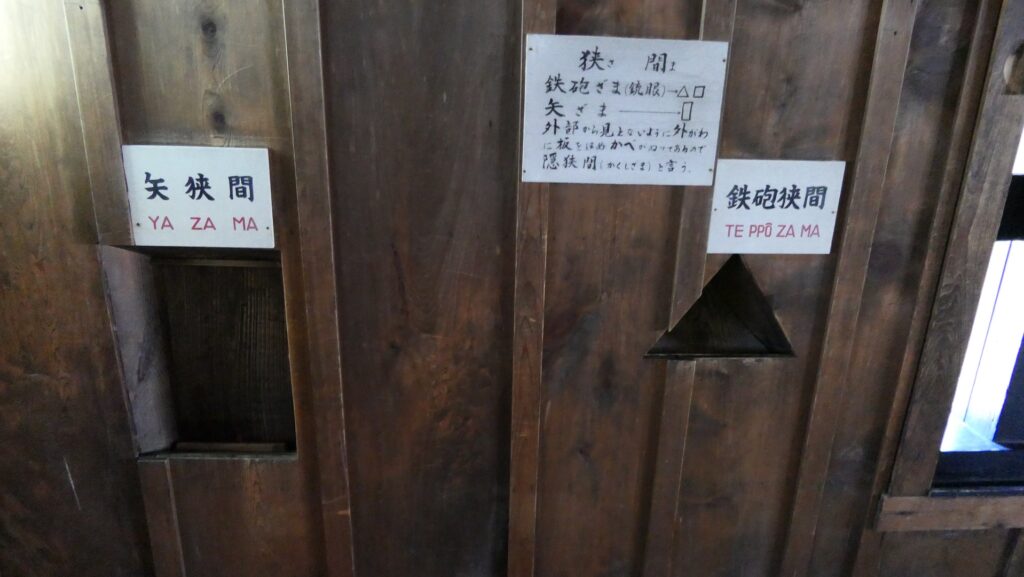


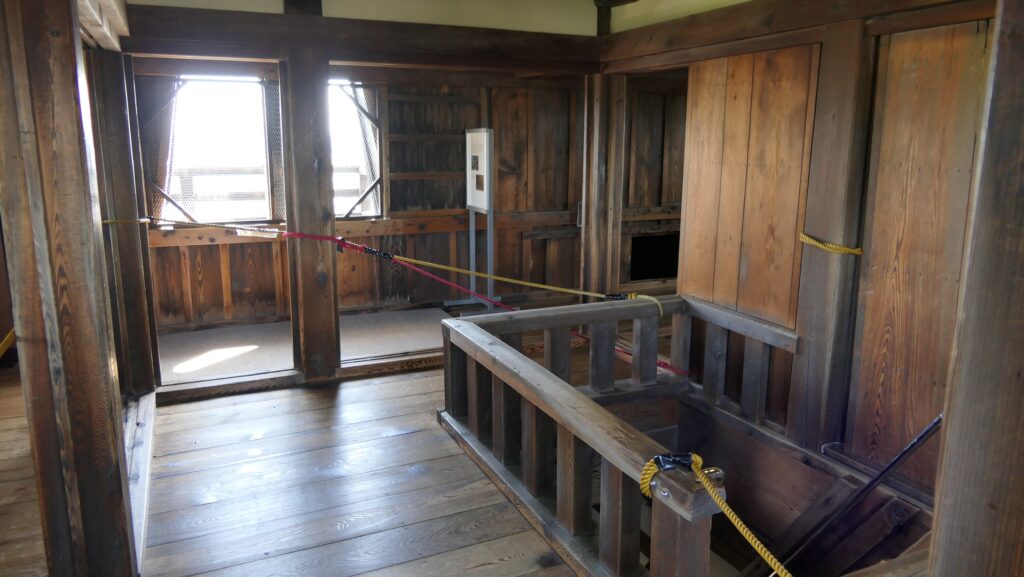

To be continued in “Hikone Castle Part3”
Back to “Hikone Castle Part1”
